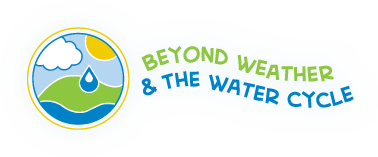Evaluating is a complex skill, including the ability to determine importance, accuracy and credibility, usefulness, and personal enjoyment or progress. In the article Evaluating in Reading and Science, we discuss how explicit instruction and the gradual release of responsibility model help students master this high-level cognitive skill. The lessons highlighted below provide appropriate support for students as they apply this skill to both fiction and nonfiction text. The variety of lessons reflects the range of abilities encompassed by this skill.
![]() Two Thumbs Up! Get Students Writing and Publishing Book Reviews (Grades K-3)
Two Thumbs Up! Get Students Writing and Publishing Book Reviews (Grades K-3)
This lesson demonstrates the process for writing book reviews and offers ideas for publishing student reviews. Students begin by evaluating book reviews written by other children. Next, students discuss the effectiveness of the reviews, what components are included, what they learned, and what they might change. Once students have a foundation for book review components and structure, they choose a book, write a review, and publish the reviews by videotaping them or posting them online. This lesson meets the following NCTE/IRA Standards: 1, 3, 4, 5, 6, 8, 11.
Guided Comprehension: Evaluating Using the Meeting of the Minds Technique (Grades 3-5)
Who is to blame for the plight of the three little pigs—the wolf or the pigs themselves? In this lesson, students read multiple versions of the familiar fairy tale and use the meeting of the minds technique to act out the opposing views of two or more characters in a debate or interview format. Students then work in small groups to write stories and dramas comparing two versions of the fairy tale. As a culminating activity, they reflect on how the reading strategy helps improve their comprehension. This lesson meets the following NCTE/IRA Standards: 1, 2, 3, 7, 8, 11.
 Research Building Blocks: Examining Electronic Sources (Grades 3-5)
Research Building Blocks: Examining Electronic Sources (Grades 3-5)
Students look at web sites that offer relevant resources for their research, as well as web sites with less useful resources. Then, they identify resources they think would be beneficial in their research and others that would not. As a group, students discuss the criteria they used in selecting or discounting sources and create a checklist to guide their future searches. Finally, students find another site they think might be beneficial and evaluate the site using the class-created checklist. This lesson meets the following NCTE/IRA Standards: 1, 3, 4, 5, 6, 7, 8, 11, 12.
Developing Students’ Critical Thinking Skills Through Whole-Class Dialogue (Grades 3-5)
In this lesson, students either listen to the instructor read My Freedom Trip by Frances Park and Ginger Park aloud or read it themselves silently. After reading, students answer an open-ended question about an issue from the book and then take positions, identify reasons to support their positions, and draw their own conclusions. The lesson may be followed by whole-class discussion sessions that place an emphasis on dialogue, eventually transferring more and more responsibility to the students for their learning. This lesson meets the following NCTE/IRA Standards: 3, 6, 11, 12.
This article was written by Jessica Fries-Gaither. Jessica is an education resource specialist at The Ohio State University and project director of Beyond Weather and the Water Cycle and Beyond Penguins and Polar Bears. She has taught in elementary and middle school settings. Email Jessica at beyondweather@msteacher.org.
Copyright September 2011 – The Ohio State University. This material is based upon work supported by the National Science Foundation under Grant No. 1034922. Any opinions, findings, and conclusions or recommendations expressed in this material are those of the author(s) and do not necessarily reflect the views of the National Science Foundation. This work is licensed under an Attribution-ShareAlike 3.0 Unported Creative Commons license.



